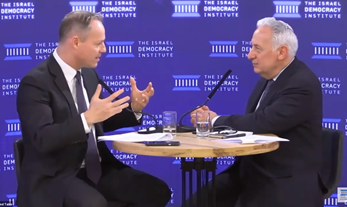


Yohanan Plesner on Fox News | "It's the cause of Freedom"
Yohanan Plesner, president of IDI, spoke with BBC News' Ben Brown as wide-scale protests erupted in Israel following the harrowing murder of six Israeli hostages by

Yohanan Plesner, President of IDI on PBS | The War with Hamas
Yohanan Plesner, President of IDI on PBS Newshour: "In 2014, there was an attempt by Hamas to launch the exact same thing... just that time, they failed."
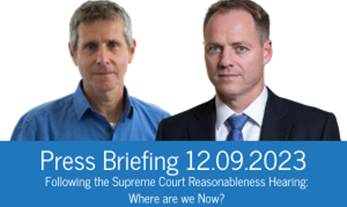
Following the Supreme Court Reasonableness Hearing: Where are we Now?
Yohanan Plesner, president of IDI and Prof. Yuval Shany, a Senior Fellow at the Center for Democratic Values and Institutions met with reporters to discuss the historic Supreme Court hearing on the repeal of the reasonableness doctrine.

Education and Democracy
Dr. Tammy Hoffman, Director of IDI's Education Policy Program explains why the current political and social crisis in Israel is related to the education system and why there cannot be democracy without educating toward democracy.
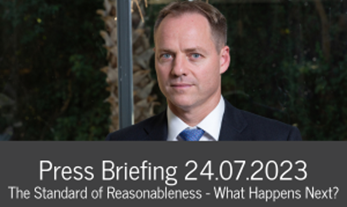
In Anticipation of the Knesset’s Vote on the “Reasonableness Standard” – What Happens Next?
With the Knesset set to hold its final vote on curtailing the “reasonableness standard,” what happens next? What are the implications of removing this type of oversight on governmental decisions, and is there still a possibility for compromise ahead of the vote?
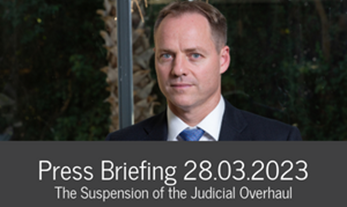
Briefing by IDI President Yohanan Plesner Following the Suspension of the Judicial Overhaul
Briefing by IDI President Yohanan Plesner Following the Suspension of the Judicial Overhaul.
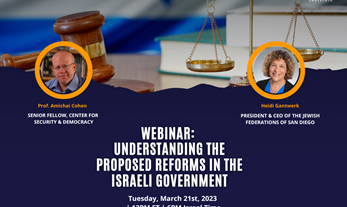
Understanding the Proposed Reforms in the Israeli Government
Understanding the Proposed Reforms in the Israeli Government - Heidi Gantwerk, President of the Jewish Federation of San Diego in conversation with IDI's Prof. Amichai Cohen, Senior Fellow at the Center for Security & Democracy.
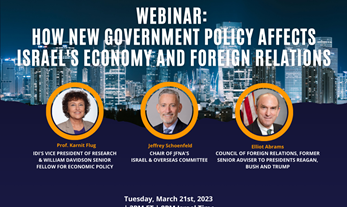
How the New Government Policy Affects Israel's Economy & Foreign Policy
The effects of the judicial overhaul on Israel's economy and foreign relations: Jeffrey Shoenfeld, Chair of the Jewish Federations of North America in conversation with Prof. Karnit Flug, IDI's Vice President of Research and William Davidson Senior Fellow for Economic Policy and Elliot Abrams, Council of Foreign Relations and former senior advisor to presidents Reagan, Bush & Trump.
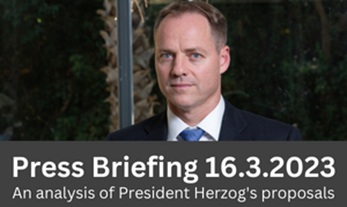
International Press Briefing with Yohanan Plesner, President of IDI
An analysis of President Herzog's reform compromise proposal from March 15th and public and political response.
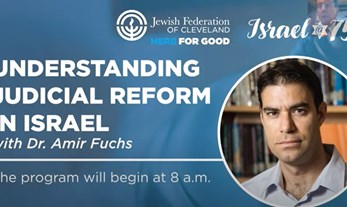
Understanding Judicial Reform in Israel with Dr. Amir Fuchs
The Jewish Federations of Cleveland was joined by Dr. Amir Fuchs, senior researcher the Israel Democracy Institute at the Center for Democratic Values and Institutions to discuss how Israel is undergoing many changes in its government.
Moderated by Judge Dan A. Polster.

Constitutional Reform in Israel - How should it be done?
President of IDI, Yohanan Plesner, describes the judicial reforms that would make Israeli democracy stronger and transform a moment of crisis into an historical constitutional opportunity.

Constitutional Reform in Israel - How should it be done?
President of IDI, Yohanan Plesner, describes the judicial reforms that would make Israeli democracy stronger and transform a moment of crisis into an historical constitutional opportunity.
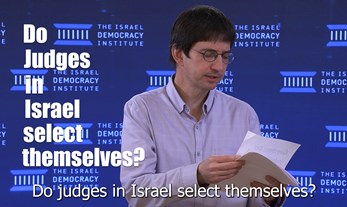
How Are Judges Selected in Israel?
How Are Judges Selected in Israel?
Dr. Guy Lurie Answers a Few Common Questions
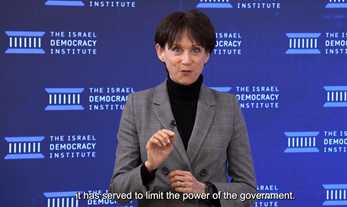
How does the judicial system in Israel work?
Prof. Suzie Navot explains the judicial overhaul and its dangers in a way we can all understand.
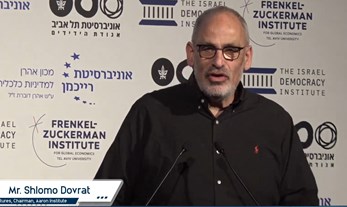
How will the judicial reform impact Israel's hi-tech sector? Shlomo Dovrat
How will the judicial reform impact Israel's hi-tech sector? Shlomo Dovrat, co-founder and General Partner at Viola Ventures, Chairman of the Aaron Institute for Economic Policy explains the crucial role the hi-tech industry plays in Israel's economy and the stark implications of the judicial overhaul on its future.
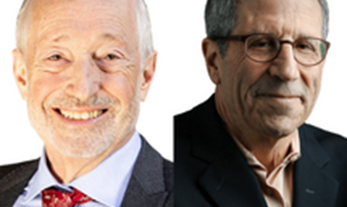
Nobel Prize Winning Economists on Implications of the Judicial Overhaul
Prof. Eric Maskin and Prof. Paul Milgrim, both Nobel Prize laureates, express their concern over the proposed judicial overhaul during a special conference held at IDI on the econonic consequences of the reform.
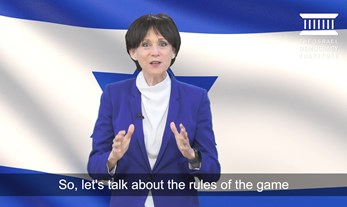
Prof. Suzie Navot Presents Principles for Constitutional Reform
"Lets talk about the rules of the game to ensure that Israel remains both Jewish and democratic, today and tomorrow"
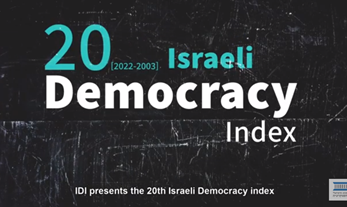
The 20th Israeli Democracy Index of the Israel Democracy Institute
Key Findings
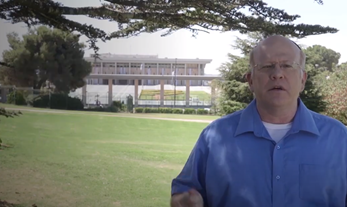
Prof. Amichai Cohen on the importance of protecting the Israeli Supreme Court
Why is the Supreme Court's independence so important to Israeli democracy and what are the proposed reforms attempting to achieve? Listen to a short explanation by Prof. Amichai Cohen, senior fellow at IDI.
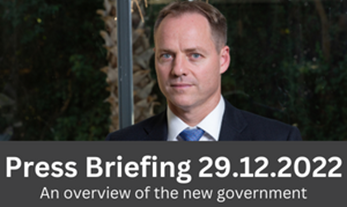
IDI's International Press Briefing with Yohanan Plesner

Prof. Amichai Cohen: a historical overview of Israel's current constitutional crisis
Prof. Amichai Cohen, Senior Fellow at IDI, the Center for Security and Democracy, provides an in-depth historical overview of Israel's constitutional crisis and the background to the currently proposed judicial review reforms, particularly, the "override clause".
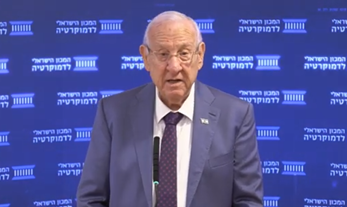
President Reuven (Ruvi) Rivlin Speaking at the Judicial Reform Conference 2022
President Reuven (Ruvi) Rivlin speaking at the Fix It Don't Destroy It Judicial Reform Conference at the Israel Democracy Institute, December 2022.
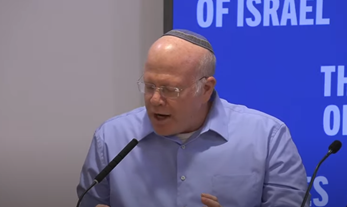
Israel's Judiciary: Reform or Ruin
Is Israeli democracy in danger?
Prof. Amichai Cohen, Senior Fellow at the IDI's Center for Security and Democracy and Adv. Shlomit Ravitsky Tur-Paz, Director of the Joan and Irwin Jacobs Center for Shared Society join in a lively discussion hosted by The Times of Israel, delving into all sides of the looming High Court override clause proposal.








